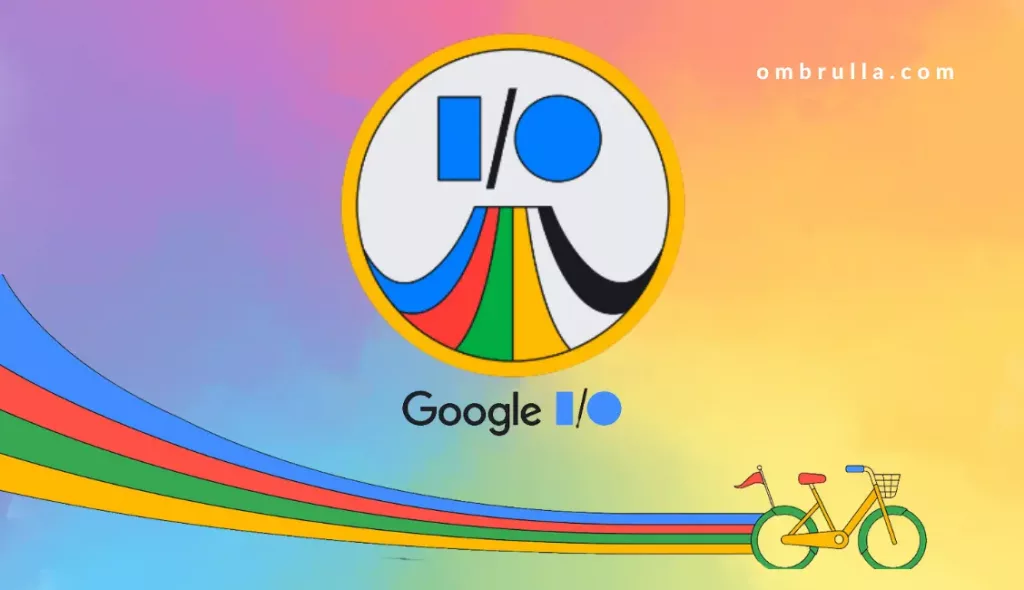
Google I/O 2023 was a whirlwind of exciting announcements and innovations, but one theme stood out: making AI more helpful for everyone. From new features in popular apps to advancements in core technologies, Google showcased its commitment to democratizing AI and making it a powerful tool for people of all backgrounds.
Let’s delve deeper into the key themes and explore the potential implications of this exciting vision:
1. PaLM 2: A New Era of AI Language Models
The introduction of PaLM 2, a next-generation language model with improved multilingual capabilities, reasoning skills, and coding abilities, marked a significant leap forward. PaLM 2 promises to enhance search, translation, and other language-based tasks, paving the way for more nuanced and helpful AI interactions.
2. AI-Powered Features for Everyday Apps
Google infused its popular apps with AI-powered features, making them more intelligent and user-friendly. Some notable examples include:
- “Immersive View” in Google Maps: This feature provides a comprehensive overview of routes, including simulated traffic flows, bike lanes, parking availability, and more.
- “Help me write” in Gmail: This tool offers real-time suggestions for improving the clarity and effectiveness of email communication.
- “Magic Editor” in Google Photos: This AI-powered editing tool helps users create professional-looking photos with ease.
3. Democratizing AI Development
Google emphasized its commitment to making AI development more accessible. By providing open-source tools and resources, Google aims to empower individuals and organizations to build their own AI applications and contribute to the advancement of the field.
4. Responsible AI Development
Throughout the event, Google stressed the importance of responsible AI development. This includes ensuring fairness, transparency, and accountability in AI systems, mitigating potential biases, and protecting user privacy.
5. AI for Social Good
Google highlighted several initiatives that leverage AI for social good, such as improving healthcare access, tackling climate change, and promoting education. These projects demonstrate the potential of AI to address critical global challenges and make a positive impact on society.
The Vision – Expanding on Google I/O 2023’s
Google I/O 2023 painted a compelling picture of the future with AI woven into the fabric of our lives, but it’s important to delve deeper into the specific details and potential implications. Here’s a more expansive look at the event’s key themes:
Helpfulness:
- Personalized Experiences: Imagine AI tailoring education to individual learning styles, recommending relevant healthcare options, or suggesting personalized entertainment based on your preferences.
- Enhanced Productivity: AI-powered tools like automated scheduling, intelligent document editing, and proactive task management can free up time and energy for more meaningful pursuits.
- Accessibility and Inclusion: AI can break down language barriers through improved translation, provide assistance for people with disabilities, and offer educational support to underserved communities.
Accessibility:
- Democratizing AI Development: Open-source tools and resources will empower individuals and organizations to build their own AI applications, fostering innovation and collaboration.
- Low-cost Solutions: AI-powered solutions need to be affordable and accessible to people from diverse backgrounds, ensuring that the benefits of AI are widely distributed.
- User-Friendly Interfaces: Simplifying AI interactions through intuitive interfaces and natural language processing will make AI accessible to everyone, regardless of technical expertise.
Responsibility:
- Bias and Fairness: Addressing and mitigating potential biases in AI algorithms is crucial to ensure fairness and avoid discrimination.
- Transparency and Explainability: Demystifying AI decision-making processes will build trust and enable users to understand how AI affects their lives.
- Privacy and Security: Protecting user data and ensuring privacy in AI systems is paramount to building a responsible and trustworthy future.
Impactfulness:
- Addressing Global Challenges: AI can play a crucial role in tackling climate change, improving healthcare systems, and promoting sustainable development.
- Empowering Individuals and Communities: AI-powered tools can help individuals overcome challenges, access opportunities, and contribute to their communities in meaningful ways.
- Fostering Creativity and Innovation: AI can be a powerful tool for artistic expression, scientific discovery, and technological advancement.
Glimpses of the Future:
- Personalized Assistants: Imagine AI companions that anticipate your needs, proactively support your goals, and provide invaluable assistance in all aspects of life.
- Intelligent Devices and Environments: Homes and workplaces equipped with AI will become predictive and adaptive, automatically adjusting to our preferences and needs.
- Enhanced Learning and Education: AI will personalize learning experiences, create immersive learning environments, and empower individuals to reach their full potential.
These are just a few examples of the potential impact of AI as envisioned by Google I/O 2023. As technology continues to evolve, it is crucial to ensure that AI is developed and deployed responsibly, ethically, and with a clear focus on benefitting humanity. By engaging in open dialogue and collaboration, we can shape a future where AI enhances our lives in profound and positive ways.
Overall, Google I/O 2023 showcased a clear vision for the future of AI: one that is helpful, accessible, responsible, and impactful. The innovations unveiled at the event offer a glimpse into a future where AI seamlessly integrates into our lives, making them easier, more productive, and ultimately more fulfilling.

Leave a Reply